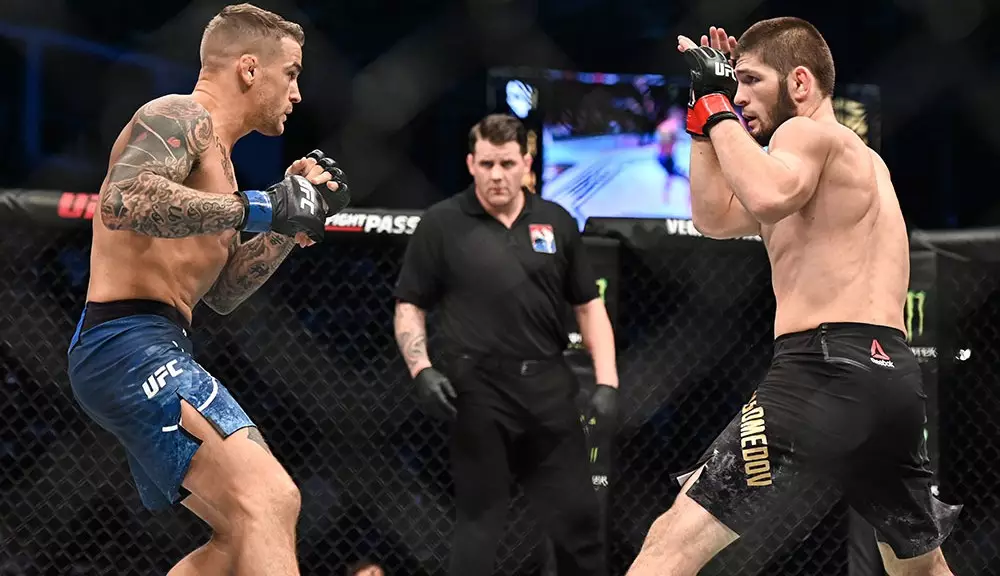Khabib Nurmagomedov, the former undefeated lightweight champion of the UFC, has stirred discussions in the mixed martial arts community by urging seasoned fighters to consider retirement. Recently, he directed his remarks towards Dustin Poirier, a notable contender in the lightweight division, who faced a setback against the reigning champion Islam Makhachev at UFC 302. Nurmagomedov’s insights stem not only from observing Poirier’s latest performance but also from understanding the evolution and arduousness of the sport itself. His opinion carries weight, as he previously bested Poirier in a title match at UFC 242, showcasing his authoritative stance in the division.
The Weight of Experience: A Farewell to Glory
Nurmagomedov’s assertion that Poirier and other veterans like Justin Gaethje and Tony Ferguson should consider stepping back from competition highlights a critical juncture in their careers. While it’s not uncommon for athletes to want to extend their tenure in the octagon, the risks accompanying prolonged careers—such as potential injuries and diminished performance—cannot be overlooked. Poirier’s remarks about contemplating one last bout before retirement reveal a fighter grappling with the legacy he wishes to leave behind. As UFC CEO Dana White hints at planning this potential farewell fight, the stakes are high, and the balance between honor and safety becomes paramount.
The conversation about retirement is often a poignant one for fighters, where the love for the sport collides with the realities of aging bodies and competitive fatigue. Nurmagomedov’s call for action is a reminder that age and relentless battle can take their toll, and it’s essential to recognize when one’s time in the spotlight is concluding. The once-dominant figures like Gaethje and Ferguson, who were once at the pinnacle of the sport, are now seen as part of an “old school” cadre that might hinder the progress of emerging talent. In that context, letting go becomes not just a personal decision but one that can influence the next generation of fighters.
For many retired athletes, the next chapter can be just as fulfilling as the fighting career itself. Nurmagomedov’s own decision to retire after his triumphant bout against Gaethje at 32 elucidates this path. He honored a promise to his mother that he wouldn’t fight without his late father, embracing his legacy while leaving the octagon on top. This transition often allows former fighters to become mentors, guiding the new wave of athletes who aspire to make their mark in the UFC. As Poirier considers his future, he may find value in transitioning into a coaching or mentoring role, offering insights that only a seasoned fighter can provide.
In the unforgiving arena of the UFC, the cycle of combat is relentless; fighters rise, achieve glory, and eventually must face the reality of retiring. Khabib Nurmagomedov’s candid reflections on the necessity of recognizing when it’s time to hang up the gloves resonate deeply within the MMA community. As the conversation around retirement continues, both established and emerging fighters should heed these discussions—balancing the passion for their craft with the wisdom of knowing when it’s time to step aside. The legacy of a fighter isn’t solely built in the cage; rather, it’s also forged in the journey that follows.

